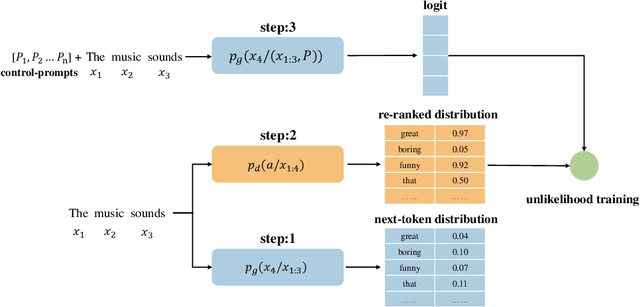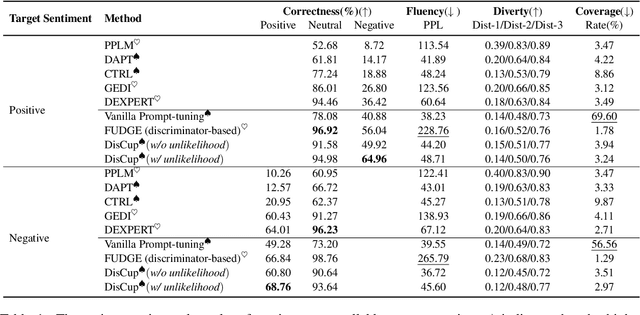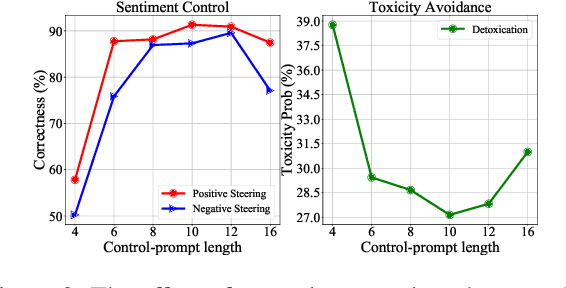DisCup: Discriminator Cooperative Unlikelihood Prompt-tuning for Controllable Text Generation
Paper and Code
Oct 18, 2022



Prompt learning with immensely large Casual Language Models (CLMs) has been shown promising for attribute-controllable text generation (CTG). However, vanilla prompt tuning tends to imitate training corpus characteristics beyond the control attributes, resulting in a poor generalization ability. Moreover, it is less able to capture the relationship between different attributes, further limiting the control performance. In this paper, we propose a new CTG approach, namely DisCup, which incorporates the attribute knowledge of discriminator to optimize the control-prompts, steering a frozen CLM to produce attribute-specific texts. Specifically, the frozen CLM model, capable of producing multitudinous texts, is first used to generate the next-token candidates based on the context, so as to ensure the diversity of tokens to be predicted. Then, we leverage an attribute-discriminator to select desired/undesired tokens from those candidates, providing the inter-attribute knowledge. Finally, we bridge the above two traits by an unlikelihood objective for prompt-tuning. Extensive experimental results show that DisCup can achieve a new state-of-the-art control performance while maintaining an efficient and high-quality text generation, only relying on around 10 virtual tokens.
 Add to Chrome
Add to Chrome Add to Firefox
Add to Firefox Add to Edge
Add to Edge